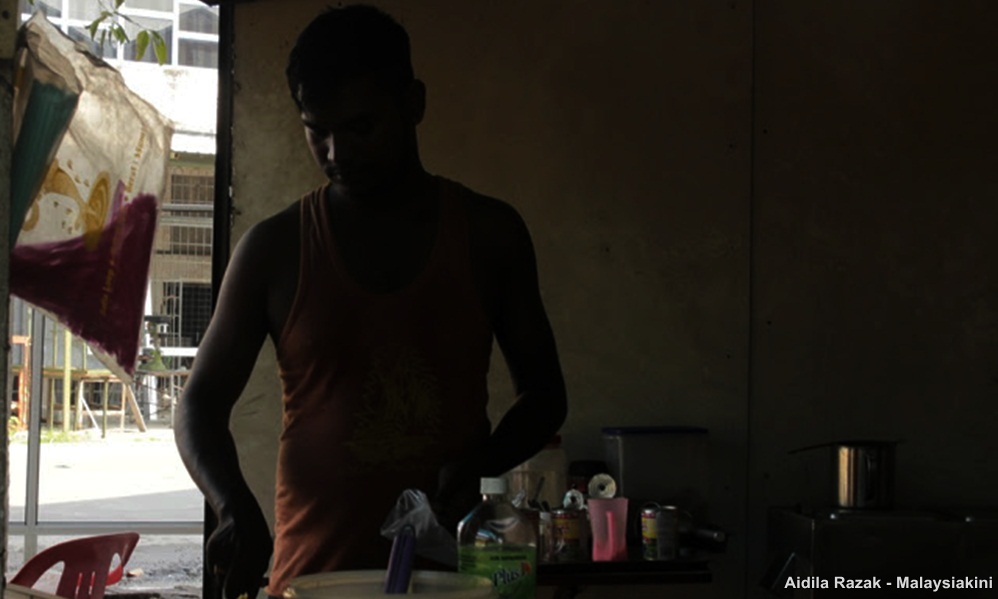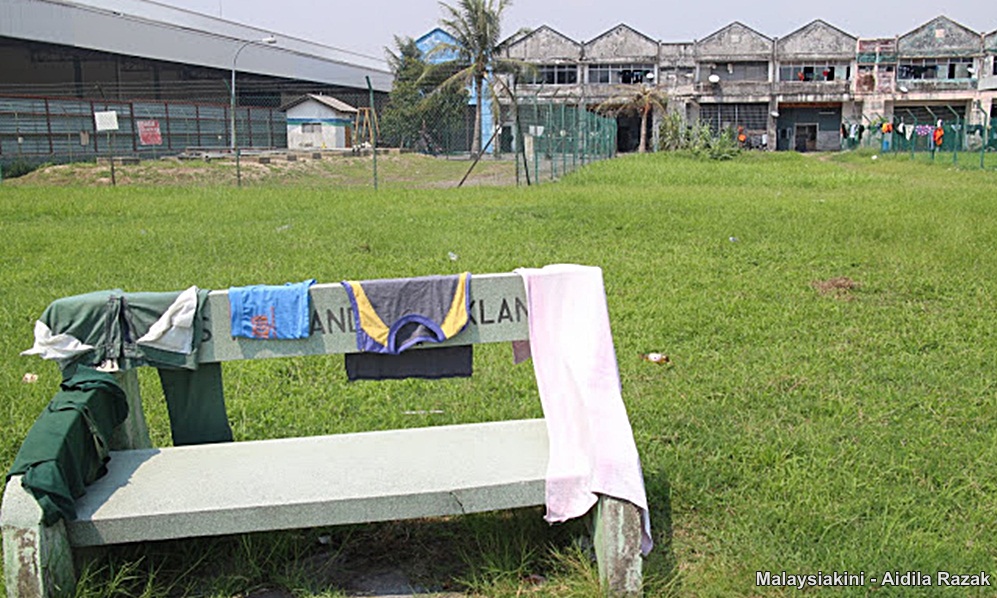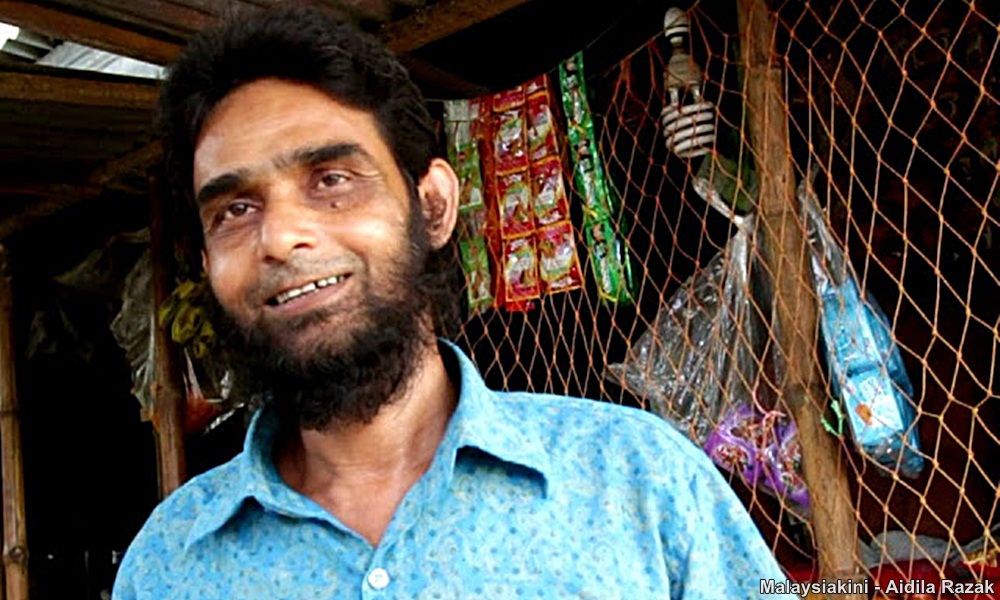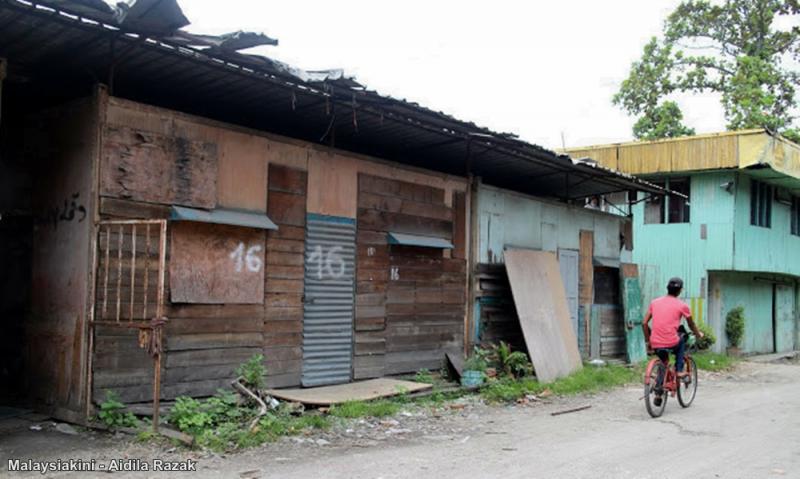SPECIAL REPORT It is 11am and Abdullah is sweating in the tropical heat as he fries potatoes, onions, and lentils in a dark and airless corner shop within an industrial area in Selangor.
He has hundreds of orders to prepare and scoops rice into the polystyrene containers lined up in a row, while waiting for the potatoes and lentils to soften.
He is an articulate young man whose eyes light up when he smiles, but he doesn’t smile often. He is tired of his life in Malaysia but for now, he is stuck
“ Mau balik kampung pun tak boleh. Wang tak ada . (I want to go home but I can’t. I have no money.)”
 He is a cook at the eatery set up by a Malaysian-Bangladeshi couple, and every afternoon he gets on a motorcycle provided by his employer for restaurant use and sends packed food to the many Bangladeshi factory workers.
He is a cook at the eatery set up by a Malaysian-Bangladeshi couple, and every afternoon he gets on a motorcycle provided by his employer for restaurant use and sends packed food to the many Bangladeshi factory workers.
Some workers in factory uniform come to the shop themselves and heap their rice and potatoes onto plastic plates. Others, perhaps on an off day, grab a knife and start peeling shallots and garlic as they chat with other workers.
“Cheap food here,” one worker remarks. The worker pays the shop RM200 a month for his meals.
The arrangement at the eatery is fairly informal. This is ideal - Abdullah does not fancy factories. “They penalise you even if you are one minute late!” he says.
But the pay of RM1,000 a month without possibility of overtime, is less desirable.
“I paid RM18,000 to come here, but my wages is RM1,000. I need to eat, buy cigarettes, buy soap, buy clothes. How much is that? How much is left? When can I recoup the RM18,000?” he rants.
Not the same Malaysia
Abdullah is bunking with friends because none of the shophouses nearby have any space available to rent.
Some of these three-bedroom apartments house 60 foreign workers, he says, but those rented by factories have much fewer occupants.
The accommodation rented by factories are often managed by sub-agents who charge a fee per worker to the factories to arrange daily transport, food, and accommodation for workers.
 Lower down the scale on the long line of beneficiaries of the migrant labour industry, Caram Asia’s Muhammad Harun al-Rashid says these sub-agents may also work with human resources managers to skim off a portion of the budget allocated by the factory to manage the workers.
Lower down the scale on the long line of beneficiaries of the migrant labour industry, Caram Asia’s Muhammad Harun al-Rashid says these sub-agents may also work with human resources managers to skim off a portion of the budget allocated by the factory to manage the workers.
Each worker is a cash cow, but the skimming at various layers in Malaysia means workers live in poor conditions.
There are rows and rows of shophouses in this industrial area. Once white, their walls are now grey with soot and peeling with age.
The windows, draped with laundry of the foreign worker occupants, open up to an unkempt field, dirty back lanes, clogged drains or more factories.
The screeching sound of electrical saws and other machinery cut through the barren stillness, occasionally interrupted by the roar of the cargo-heavy trucks making their way down the pothole-ridden roads.
It is a far cry from the glitzy Petronas Twin Towers that Abdullah was sold on.
Cari makan cops
It is very rare that he catches a sight of those towers anyway, even from a distance. Today, he is afraid to venture even a kilometre away from the shop.
The week before, as had happened many times before, he was stopped by a policeman and had to part with some cash.
“He said, ‘Okay, I have caught you so now we can go to the lock-up. After that you will be sent to Sungai Buloh (immigration detention centre) and you’ll have to call you agent to get you out.”
Abdullah works at the eatery, but another company is listed as his employer on his work permit - an agent.
He is confident the agent will secure his release if he is picked up, but it would not be immediately. Every day he is behind bars is another day without work and pay.
“Sometimes I think these policemen who cari makan (look for bribes) are like dogs. If they catch you, you will have to pay.”
And then, he stops himself. The police station is not very far from here.
“I cannot tell you all this. They will get angry. They know where we are, and they can get me. It will be difficult.”
The Malaysian agent trap
It is most dire in the past two months, he said, because he is without his passport. The passport is with his agent, whom he paid RM3,500 to renew his work permit.
Abdullah is afraid of letting his permit lapse, so he usually sends it ahead of time. This time, however, it is taking far longer to process and it is making him anxious.
No public buses ply the area, so he takes a taxi to go to the agent’s office and needs to make two to three trips for this purpose.
All in, he estimates it costs him four months’ wages to renew his permit every year. This is more than double the regulated levy. As a restaurant worker, Abdullah’s annual levy should only be RM1,800.
“And when I go visit the agent, I cannot work. I don’t make money on those days.”
Abdullah says he knows other agents who charge less than what he pays to renew his permit, but there is no way to shop around.
“I had a friend who tried going to a different agent, and within a month, he was deported.”
The agent, listed as the employer with the Department of Immigration, complained of the worker’s misconduct and terminated his permit.
When Malaysiakini visited successful returned migrant Nazmun in rural Bangladesh, he could not stop talking of the wonderful time he had in Malaysia.
Nazmun spent about a decade in Malaysia, and arrived in 1990 in the first wave of migration of blue collar workers from the south Asian nation to Malaysia.
His migration cost is less than 10 percent of what Abdullah paid, but his salary was around the same as what Abdullah is making today.
 Unlike Nazmun
(photo)
, Abdullah’s memories of Malaysia will be that of fraud and extortion - that is, if he can make enough to return.
Unlike Nazmun
(photo)
, Abdullah’s memories of Malaysia will be that of fraud and extortion - that is, if he can make enough to return.
“I can stay here for 30 years and get nothing.”
What if he does make it home, and someone asks: ‘I want to go to Malaysia. Can you help me?’
“If I say, ‘Don’t go, it’s a tough life there’, they will tell me: ‘You’re rich now, you wear nice clothes.’.
“So all I can say is ‘Go and see how it is.’ Once you are here (in Malaysia), you can only cry. All your money’s gone; there is no way home.”
Part 1: Debt bondage: Chasing the Malaysian dream from Bangladesh to KL
Part 2: Land lost, debt-ridden, yet many still flow from Bangladesh
Part 3: Why does a construction worker hold a ‘professional visa’?
AIDILA RAZAK is a member of the Malaysiakini team. Her four-part series, which ends today, was done during her sojourn with the Asia Journalism Fellowship, supported by the Temasek Foundation.





